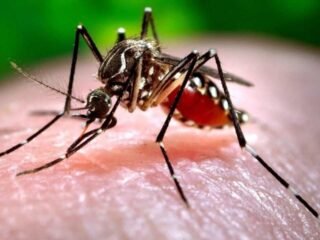New Delhi, 04 January 2025: E-cigarettes have become an increasingly popular alternative to traditional tobacco smoking, particularly among younger individuals. While they are often marketed as a safer option, a growing body of research suggests that e-cigarettes may still pose health risks. A recent study has revealed a concerning link between e-cigarette use, particularly those with fruit flavors, and an increased risk of nocturnal dry cough, shedding light on the potential adverse effects of flavored e-cigarettes on respiratory health.
The study, published in a leading medical journal, aimed to investigate the impact of e-cigarette use on respiratory symptoms, with a focus on dry cough, a common symptom associated with irritants in the airways. Researchers observed individuals who used e-cigarettes with various flavors, including fruit, menthol, and tobacco, and compared their symptoms to those of non-smokers and users of traditional cigarettes. One of the key findings of the study was that individuals who used e-cigarettes with fruit flavors were significantly more likely to experience nocturnal dry cough compared to those who used unflavored e-cigarettes or no e-cigarettes at all.
The research team hypothesized that the increased risk of dry cough could be linked to the chemicals used to create the fruity flavors in e-cigarettes. Many flavored e-liquids contain compounds such as diacetyl, which is known to irritate the respiratory system. Diacetyl, in particular, has been associated with a condition known as “popcorn lung,” a serious lung disease that can cause coughing, wheezing, and shortness of breath. Although diacetyl has been banned from use in traditional cigarettes, it is still present in many e-cigarette flavorings, especially those that mimic fruity or dessert-like tastes.
The study’s findings are significant, as nocturnal dry cough is often a precursor to more severe respiratory conditions. A persistent cough, especially at night, can disrupt sleep and interfere with an individual’s overall quality of life. It may also signal the presence of underlying lung irritation or inflammation, which could potentially lead to chronic respiratory diseases over time. The fact that fruit-flavored e-cigarettes were associated with an increased risk of such symptoms underscores the potential dangers of using flavored e-liquids, which are particularly appealing to young people who may be unaware of the long-term health consequences.
In addition to the risk of dry cough, e-cigarettes have been linked to other respiratory issues, such as wheezing, shortness of breath, and chronic bronchitis. The inhalation of vaporized chemicals, including nicotine and flavoring agents, can irritate the delicate tissues in the lungs, leading to inflammation and increased sensitivity in the airways. This may result in more frequent coughing, particularly during the night when the body is at rest and the airways are more relaxed.
The study calls for greater regulation of flavored e-cigarettes and stronger public health campaigns to raise awareness about their potential risks. While e-cigarettes are often marketed as a less harmful alternative to smoking, the evidence suggests that they may still pose significant health risks, especially when flavored with chemicals that can irritate the respiratory system. Health experts recommend that individuals who experience symptoms such as dry cough or wheezing consider reducing or eliminating their use of e-cigarettes, particularly flavored varieties, to protect their lung health.
In conclusion, the latest study provides important evidence linking fruit-flavored e-cigarettes to an increased risk of nocturnal dry cough. This finding raises concerns about the safety of flavored e-liquids and highlights the need for further research into the long-term effects of e-cigarette use on respiratory health. As the popularity of e-cigarettes continues to grow, it is crucial for consumers to be informed of the potential risks associated with these products, especially those with enticing flavors.







